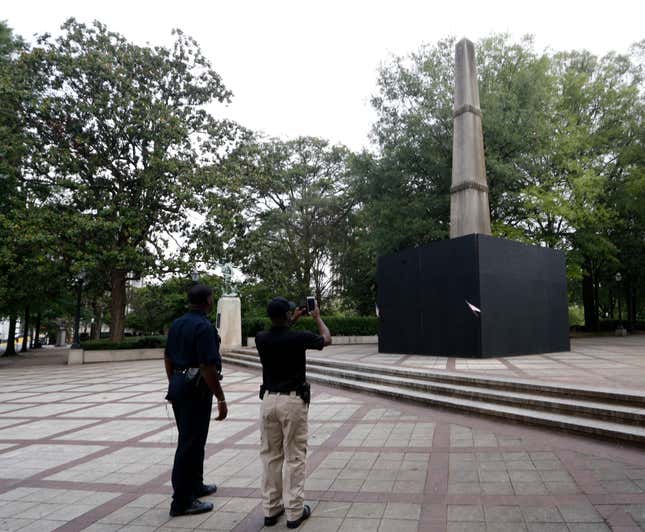
On Wednesday, the Alabama Supreme Court ruled unanimously that the city of Birmingham violated Alabama’s monument protection law when it placed a plywood screen around a Confederate monument in a downtown park on August 18, 2017.
According to NPR, the 9-0 ruling by Alabama’s high court reversed a ruling by the lower Jefferson Circuit Court that was favorable to the city in January.
In that decision, Judge Michael Graffeo deemed the state’s protection law as ambiguous and violated the majority-black city’s right to free speech.
But a municipality does not have constitutional rights to free speech, the all-Republican Supreme Court argued in its decision.
“The Supreme Court’s ruling is a victory for the Alabama law which seeks to protect historical monuments,” Alabama Attorney General Steve Marshall said in a statement.
“The City of Birmingham acted unlawfully when it erected barriers to obstruct the view of the 114-year-old Confederate Soldiers and Sailors Monument in Linn Park,” he added.
Representatives for the city of Birmingham disagree.
“We are strongly disappointed with the ruling of the Alabama Supreme Court. This ruling appears to be less about the rule of law and more about politics,” said Rick Journey, who’s the director of communications in the Office of Public Information, in a statement.
“We are carefully reviewing the opinion to determine our next step, but clearly the citizens of Birmingham should have the final decision about what happens with monuments on Birmingham city grounds.”
The New York Times reports that the 2017 Alabama Memorial Preservation Act prohibits relocating, removing, altering or renaming public buildings, streets and memorials that have been standing for more than 40 years.
While the law doesn’t specifically mention Confederate monuments, it just so happen to be enacted as some Southern states and cities began removing monuments and emblems of the Confederacy because they are considered symbols of racism and slavery.

